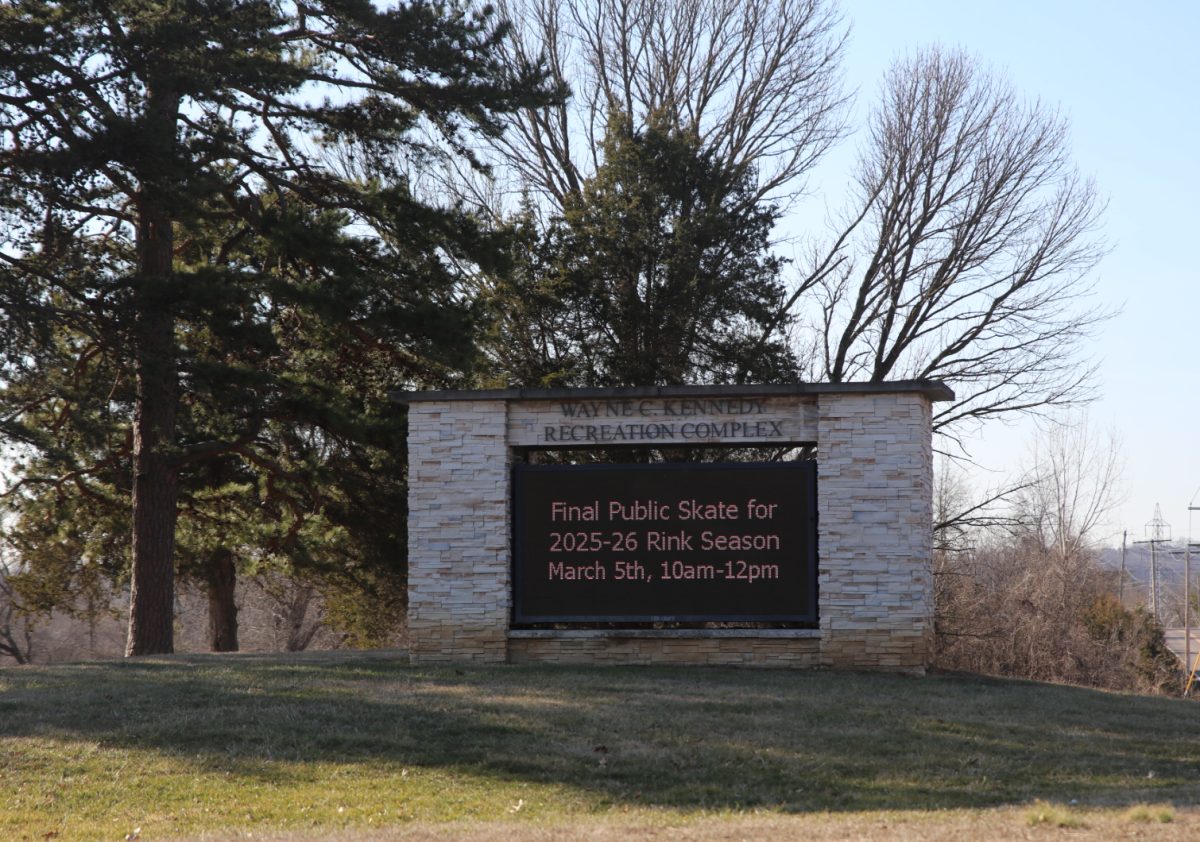Originally presented this fall with a proposed 2009 budget using $687,785 in cash reserves to balance it, Crestwood aldermen last week slightly reduced that budget by trimming $21,000, but rejected a handful of cuts proposed by Ward 3 Alderman Jerry Miguel and seconded by Ward 4 Alderman Steve Nieder.
By voice vote, aldermen approved Miguel’s motion to cut the city’s Aquatic Center debt payment from $1,081,000 to $1,060,000. Miguel noted that since the city has paid $1,060,000 in recent years toward the debt payment, which expires in 2012, he saw no need to budget an additional $21,000.
The board also voted 4-2 to approve Miguel’s motion to reclassify more than $20,000 in employee wages from contractual items to personnel expenses. The move had no financial impact and only reclassified those expenses. Ward 1 Alderman Carol McGee and Ward 4 Alderman John Foote voted “no.” Ward 1 Alderman Richard Bland did not vote on that motion, and Ward 3 Alderman Gregg Roby was absent Dec. 9.
But aldermen rejected two other motions from Miguel — one to save roughly $70,000 in wages and benefits by cutting a vacant police-officer position that city officials have verbally agreed not to fill and another to save $12,000 by reducing the city’s Sappington House operational budget from $23,500 to $11,500.
The board voted 4-3 to deny Miguel’s motion to remove the vacant police-officer position from the 2009 budget. Board President Chris Pickel of Ward 2, Ward 2 Alderman Michael Kelsch, McGee and Bland voted “no.”
Miguel, Nieder and Foote voted to eliminate the vacant police-officer position.
Aldermen voted 4-2 to reject Miguel’s motion to cut $12,000 from the 2009 Sappington House budget. While Miguel and Nieder voted in favor of that cut, Kelsch abstained as he intends to submit a request to bid for the rights to run the city-owned Sappington House restaurant.
Mayor Roy Robinson said he is opposed to cutting the vacant police-officer position because it could hinder the city from hiring that officer if needed.
“We have a department that’s come down so low in numbers that it starts affecting overtime,” he said. “ What the Chief (Michael Paillou) agreed to do is that we not lose the slot so if he needs to fill it, he can. But not to completely take that away from him in case we do need it. It’s there, and he’s promised to try not to fill that position. So we’re not spending the money. We’re just keeping the slot there.”
In response to Kelsch’s statement that cutting the vacant police-officer position is “dangerous,” Nieder said Paillou always could come back to the board if he needs to fill that position and the board could amend the 2009 budget.
As for the total budgets for 2009, the board voted 5-2 to approve the city’s budgets for the general fund, park and stormwater fund and capital-improvements fund. Miguel and Nieder voted “no” on all three budgets.
City Administrator Jim Eckrich has recommended that the city use more than $600,000 of its projected Jan. 1 cash balance of more than $3.4 million to set the 2009 budget, which then is slated to have a surplus of $49,925 in revenues over expenditures. Without the use of reserves, Eckrich believes residents would see “a substantial reduction in services.”
Among all funds, the proposed 2009 budget calls for $13,064,876 in new revenues — not counting the use of cash reserves — and $13,722,736 in expenditures, more than $1 million greater than 2008 budgeted expenditures of $12,676,109. The budget includes a $1,000 pay in-crease for all employees — a roughly 2-percent pay in-crease for an employee making the city’s average pay.
Miguel told aldermen that with the use of more than $600,000 in reserves, he does not believe the board adequately studied the 2009 budget.
“Many around us have cut costs,” he said. “Few municipalities that I can think of face the sales-tax revenue risk that we do. Yet we have a $600,000 operating deficit and have yet to look at our costs in detail. I know the board has a lot of confidence in Mr. Eckrich, our city administrator.
“And I do, too. But as an elected official, I feel that I have a fiduciary responsibility that lies between Crestwood residents and our city administrator. And I don’t feel that we as a board have reviewed the 2009 budget at a sufficient level of detail, which in the past has been at the line-item level. We as a board have not performed that task. And it appears to me that we are now in the process of turning that task over to the function of a revenue committee.”
That revenue committee, which at the moment is comprised of six citizens and chaired by Pickel, will begin meeting soon to develop ideas of enhancing the city’s revenue.
But while Miguel criticized the board for not properly reviewing the budget, Foote said the board already tried to solve the city’s financial woes last summer with the proposed five-year, 35-cent tax increase Proposition 1, which voters rejected.
“Somewhere in the summer, I clearly brought out the fact that we are coming into a perfect economic storm,” Foote said. “Prior to that, this board met with the idea of putting forward an additional tax so we can support this city through the revenue shortfalls … Subsequently, there was a heck of an argument with people discussing this as if we were a bunch of spendthrifts up here. Now, you can’t have it both ways. There was an effort to stop the request the board made for a relief or a patch. A solid effort. It was clear at that time this city was in deep trouble. And I was quoted on many occasions in the paper pointing this out.
“… Frankly, no matter how much we fool with this thing right now, I’m not sure we’re going to get through this without serious cuts. That was carefully aligned in the newspaper articles written up to the election … We’re in the middle of a storm. We asked for life preservers. They were rejected. Now we’ve got to fight it through.”
Bland shared those sentiments, noting that while those cuts may have to be considered in the future, he does not believe they must be made now.
“The state of Missouri is going to be using fund balancing to the tune of $340 million to try to offset their losses,” he said. “So it’s not unique to the city of Crestwood that we’re using cash reserves or rainy-day funds or whatever you want to call it. Is it a good plan? No, it’s not. It’s very shortsighted and it’s very short term. Now when the tax was going forth and people were discussing whether it should be supported or not, I heard two things. And one was we need to be fiscally responsible. I think this budget is about as close to that as we’re going to get. Two, don’t mess with my services. And that’s the more important one. Folks don’t want to pay more, and I can understand that. But at the same time, I’m not comfortable with fire (service) leaving the city of Crestwood. We don’t want the police to be outsourced. They want their streets plowed. And don’t mess with the parks …”








